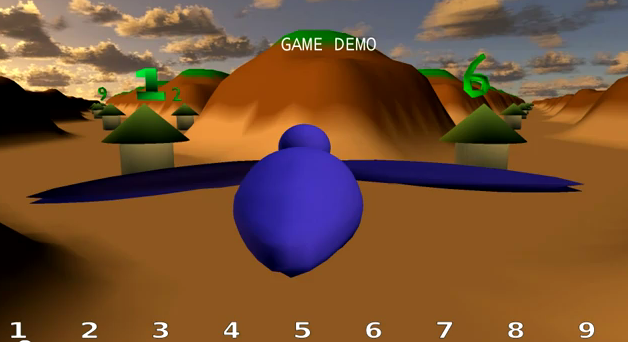Computer Science Majors Create Video Game for Children,
by Nicholas Baldwin, Computer Science
After analyzing and implementing algorithms for three years, Florida Tech Computer Science Seniors are given the opportunity to show off the skills they have accumulated in class. This opportunity is known in the course curriculum as the “Senior Design Project”. A Senior Design Project consists of 1-4 group members working on one project for two semesters. Going into my first semester of Senior Design, I had no idea what I was in for.
At our first meeting I met my fellow group members: Ryan Knee, Ryan Small, and Stephanie Drinks, and faculty sponsor: Dr. Chan. At the start of the meeting Dr. Chan told us we need to come up with a project idea and he suggested we enter our project into the 2011 Microsoft Imagine Cup Competition. The group all agreed this was a good suggestion, and proceeded to do some research into it. We discovered that the theme of the competition was: “Imagine a world where technology helps solve the toughest problems”, and were given the top 8 United Nations Millennium Development Goals as a solution guideline. Being that we are in college and believe the notion, “knowledge is power”, we chose the goal: “Achieve Universal Primary Education”. There was one minor problem at this point: the competition had already started a few months back, giving us only about 3 months to develop and submit a project.
Heavy group brainstorming ensued upon selecting our tough problem to be solved. Eventually we decided on teaching children how to count, considering math is one of the most useful things to a student. Our group then concluded that the best way to teach children in third world countries how to count is to utilize the One Laptop per Child movement, and develop a fun, language-independent, educational video game. The language-independence is especially tricky, considering we have to convey the instructions of the game with only universally-accepted symbols. Our group also decided to add a webcam for the main controller of the game, to get the children actively participating in the game by detecting their body movements.
We then spent the next several weeks designing 3-D models, programming a motion detection controller, programming the game play, and trying to make it fit all together. The final few days before the Imagine Cup USA and Imagine Cup World deadlines were especially hectic. Our group faced countless hours staring at classes and diagrams of the game to fix bugs. When it came down it though, we had only finite amount of time and had to turn in what we had so far. Luckily for us, Florida Tech prepared us quite well, and our group received an Honorable Mention in the USA Microsoft Imagine Cup. This project experience has been very rewarding to be a part of, and our group is continuing to work on the game for the next year’s Imagine Cup.





